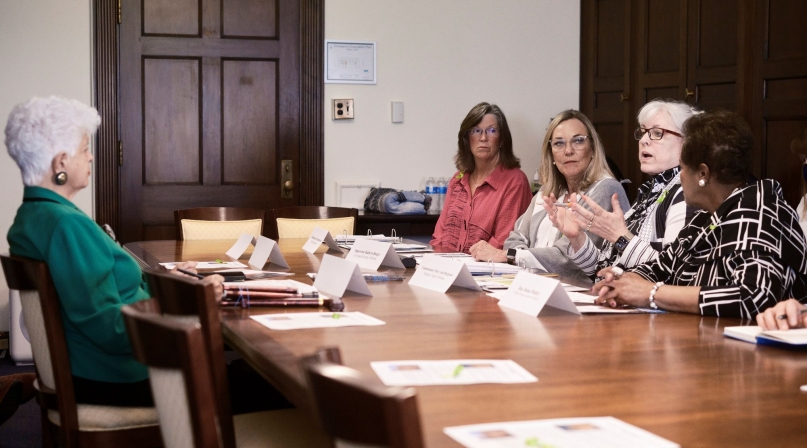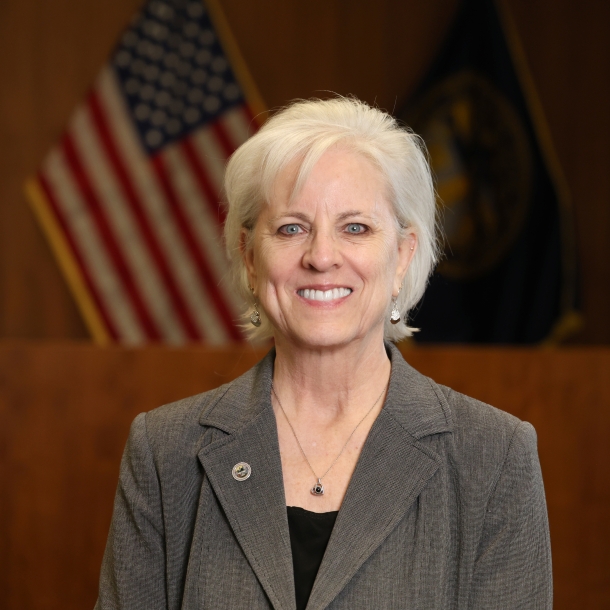Tackling youth mental health: Local and national strategies for change

Key Takeaways
Over the past 18 months, the NACo Commission on Mental Health and Wellbeing has diligently addressed critical priorities and policy reforms to tackle our nation’s escalating mental health crisis. Serving as a member of this Commission has been a privilege, working alongside local leaders to make significant strides in reforms aimed at improving outcomes for residents. Our focus has been on maximizing the use of federal and local resources and fostering greater compassion for those grappling with mental illness.
Learn more
Through these efforts, it became evident that the weight of our nation’s mental health crisis is being acutely experienced by our youth, with mental health conditions being significant contributors to illness and disability among children and adolescents. According to National Institute of Mental Health data on major depression, an estimated 3.7 million adolescents aged 12 to 17 in the United States had at least one major depressive episode with severe impairment in 2021, comprising nearly 15 percent of the U.S. population ages 12 to 171.
In 2021, suicide was the second leading cause of death among individuals between the ages of 10-14 and 25-34, the third leading cause of death among individuals between the ages of 15-24, and the fifth leading cause of death among individuals between the ages of 35 and 44, according to the Centers for Disease Control and Prevention (CDC) WISQARS Leading Causes of Death Reports. 2
Here in Douglas County, Neb., data collected as of 20213 reveals concerning trends regarding children’s mental health. Nearly 10% of parents with children ages 5-17 rate their children’s mental health, encompassing stress, depression, and emotional issues, as “fair” or “poor.”
Additionally, approximately 10% of children in the metro area within the same age group have been diagnosed with depression, marking a notable increase since 2015. These figures are compounded by stark disparities, indicating that such challenges are more prevalent among minority children and those from lower-income households. Furthermore, among high school students in Douglas County, 13.1% report attempting suicide in the past year, based on the 2018-2019 Youth Risk Behavior Survey, a rate that surpasses the national prevalence.
Locally, the county is leading reforms that attack these challenges head on. Our “Here For You, For Them” is an initiative focused on mental health awareness and suicide prevention among youth. It aims to provide resources, support and education to help young people and their families navigate mental health challenges.
The program emphasizes the importance of community involvement and intergovernmental partnerships to create a supportive environment for youth mental well-being. By fostering a community-wide approach to mental health, the campaign strives to create a supportive environment that encourages early intervention and reduces the stigma associated with mental health issues.
Additionally, the Douglas County Juvenile Assessment Center (JAC) in Omaha, Neb., provides comprehensive assessment services for at-risk youth. Celebrating its 20th anniversary, the JAC has served around 28,000 young individuals, focusing on diverting them from the justice system and addressing underlying issues through multi-agency collaboration. Services include behavioral health assessments, substance abuse evaluations and family support, aiming to reduce recidivism and promote positive outcomes for youth and their families.
Apart from the local efforts of our county, meaningful progress in addressing the alarming statistics of youth mental illness and suicide cannot be achieved without intergovernmental partnership. Along with other leaders of NACo’s Commission on Mental Health and Wellbeing, I am calling for significant federal policy changes, including:
- Funding for new partnerships among federal, state, and local child welfare and substance use disorder agencies that would address challenges in getting access to timely services for children and youth with co-occurring conditions such as developmental delays and disabilities.
- Direct investments in school and community-based behavioral health, developmental and substance use disorders services for children and youth, which places counties at the center of planning and implementation.
- Medicaid reimbursement to states, local governments, and Local Education Agencies for health and behavioral health services provided in schools. This reimbursement should include both direct services, such as medical appointments and therapies, and administrative services, such as outreach and care coordination.
- And lastly, federal support for juvenile and family courts that rehabilitate juvenile offenders, connect them to services, and further allows them to adequately address the needs of troubled youth and their families.
The cognitive and social-emotional skills learned by children and adolescents are pivotal in shaping their lifelong mental health and significantly impacts quality of life. Neglecting mental health and psychosocial development during childhood and adolescence can have long-term effects, restricting opportunities for leading fulfilling lives in adulthood. It’s imperative that we prioritize early intervention by focusing on youth-centered mental health and substance use disorder prevention strategies. By doing so, we can effectively address the mental health needs of the entire community.
Featured Initiative
NACo Commission on Mental Health and Wellbeing
(2023-2024) Counties increasingly handle direct mental health service. NACo’s Commission on Mental Health and Wellbeing developed reports and united county leaders to address the mental health crisis through key policy priorities.

Related News
Stretching small opioid settlement allocations helps funding do more
States and localities are set to receive $56 billion in opioid settlement dollars over an 18-year period, but not every county that receives settlement funding will get enough to build out infrastructure.


